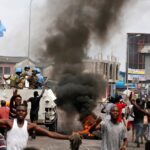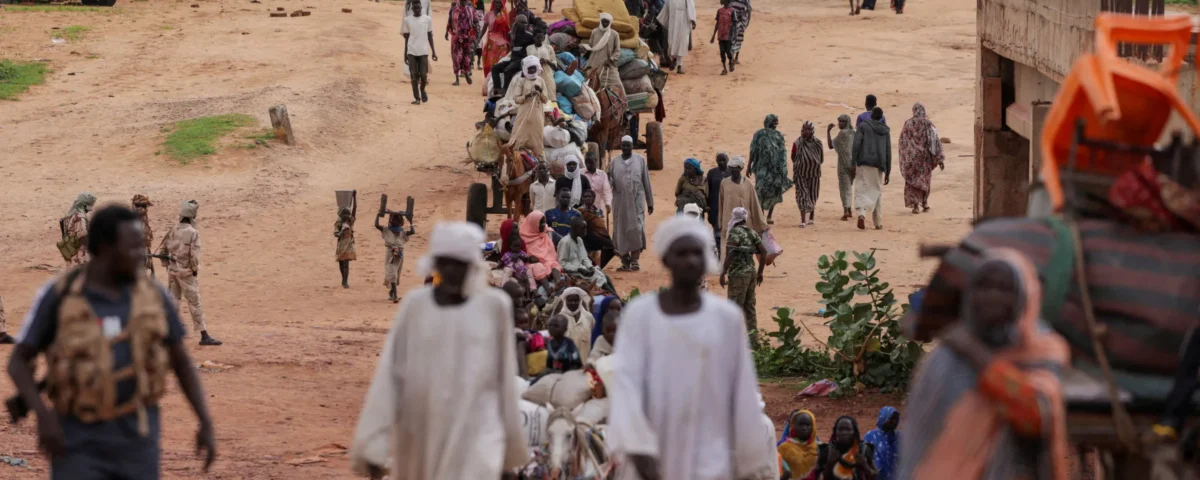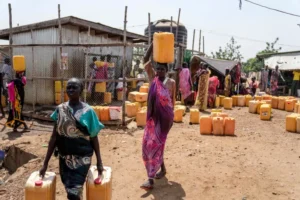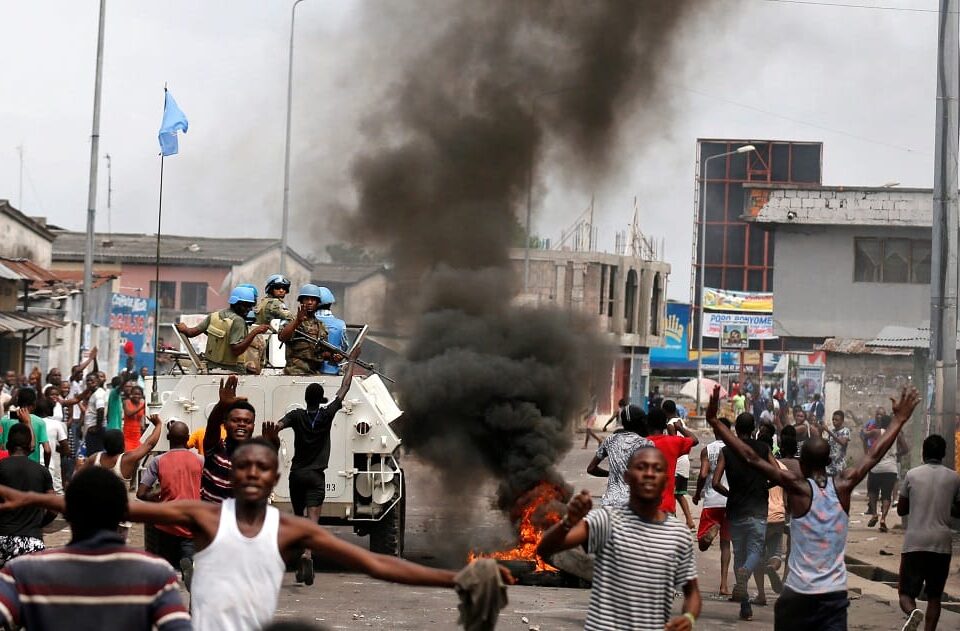
Rebranded Quest Motor Manufacturing on revival mode with new Chinese partnerships
October 16, 2025
DRC’s silent crisis: The world must stop turning a blind eye
October 20, 2025Sudan’s displacement crisis: The realpolitik of double standards in humanitarian international relations

The war in Sudan has seen over 150 000 lives lost and forcibly displaced over 12 million people, according to the United Nations (UN) agencies. (Pic By AlJazeera)
“Until that double standard dies, Africa’s displaced will remain proof that humanity still has borders.”
By Stephanie Musabaeka and Mazvita Chimkoko
THE crisis on Sudan has shifted from what used to be an acute news blitz to an exposure of the double standards of the international relations system and how it has failed the African nations.
The civil war in Sudan began on 15 April 2023 between two rival factions of the military government of Sudan. The war has spanned over two years escalating a violent conflict between the Sudanese Armed Forces (SAF) and the paramilitary Rapid Support Forces (RSF), which has since erupted into a full-scale war. It has seen over 150 000 lives lost and forcibly displaced over 12 million people, according to the United Nations (UN) agencies, with about eight to nine million people on record to have crossed borders into Chad, South Sudan, Egypt, Ethiopia and the Central African Republic, fleeing the war.
It is a mirror reflecting the world’s moral hierarchy — a hierarchy where African lives are infinitely negotiable and African suffering is tolerated, so long as it does not inconvenience global politics. Over 12 million Sudanese have been forced to flee their homes in less than two years. Entire cities have been reduced to rubble and famine now stalks a generation. Yet the world’s collective response remains a mix of ‘polite’ statements, delayed sanctions and dwindling aid pledges.
Sudan’s humanitarian crisis is now the largest on record. More than 30.4 million people are in urgent need due to famine, human rights violations and attacks on aid workers. Specifically in parts of the Darfur region, children are dying from malnutrition, hospitals have closed and liberal workers have been either killed or expelled. The European Union (EU) and Integrated Food Security Phase Classification (IPC) reports note that conflict and economic decline, high food prices as well as the climate shocks, drought and floods have all combined to make it harder for people to feed themselves and to keep working their land. The IPC is a global initiative that assesses food insecurity and malnutrition. The aid from Al Fasher the capital city of Sudan’s North Darfur region has been cut off whilst the aid in some cities has been looted or the cities have become inaccessible. In Chad’s eastern reception areas where people are fleeing, the areas are now overcrowded with water supply insufficient and shelters collapsing.

The water situation is worsening for people living in shelters in Chad after fleeing the war. (Pic By Aljazeera)
However, on the contrary, when the Russia-Ukraine war broke out in Ukraine, the international response was immediate with substantial airlifts, open borders, and billions of dollars channeled towards aid. When it erupts in Africa, the world pauses to calculate strategic interests. Sudan’s displacement catastrophe, the largest in the world, has not inspired the same moral outrage or political mobilization. The contrast exposes the deep bias baked into global humanitarianism where suffering is triaged by geography and race. Sudanese civilians do not need pity, but need proof that the international system values their lives equally. But so far they have received the opposite.
One can argue that the international system has tremendously failed Sudan, while being a backbone to other war-torn countries such as Ukraine and Gaza. While all these countries be it first-world or third-world countries, face the same reality, grieving for their people and watching their countries completely fall into shambles, there is a huge disparity in media coverage and the narrative. Despite being one of the worst humanitarian crises of the 21st Century, Sudan garnered surprisingly little public attention compared to the ongoing Western wars between Russia-Ukraine and the Israel-Gaza. The asymmetric international media salience of war in Ukraine and Gaza from reputable news channels such as CCN, BBC, Al Jazeera and many others, contrasts sharply with the near-silence on the Sudan war.
This beyond doubt exposes the realpolitik where double standards in international relations occur, when rules are applied inconsistently across different states, particularly when powerful states hold themselves and their allies to different standards than they do other nations. This hypocrisy challenges the perceived fairness and legitimacy of the international system, eroding trust and exacerbating global tensions.
According to The Economist (2024), A review of data from the analytics firm Chartbeat, it showed that news coverage of Sudan peaked in April 2023 with about 7000 new articles globally, but averaged only around 600 per month in 2024. In contrast, coverage of the wars in Gaza and Ukraine stayed above 100 000 stories per month. The lack of sustained global media attention on Sudan is not accidental but symptomatic of an international order that values some lives more than others.
Disparities in humanitarian funding reveal how the international community has turned a blind eye to Sudan’s conflict despite it displacing millions. According to the UN Refugee Agency, UNHCR report this year, over 13 million Sudanese have been forced from their homes, including 8.6 million internally displaced, making it the world’s largest displacement crisis. Yet, international aid remains grossly inadequate. Sudan received only $208 million from the Sudan Humanitarian Fund in 2024, and UNHCR’s 2025 appeal was just 35% funded ($389 million of $1.11 billion). In contrast, Ukraine’s humanitarian plan was 73% funded, totaling $3.1 billion. As Mark T. Buntaine notes in his 2016 book, “The Politics of Aid Effectiveness,” donor priorities often follow media visibility and geopolitical interests rather than genuine humanitarian need, explaining why Sudan’s crisis remains underfunded and overlooked.
RSF tactics in the Darfur region have included sieges of towns and attacks on camps that were meant to terrorize, displace and then render populations vulnerable to recruitment, extortion or land grabs. The humanitarian sector has grown into an industry professionalized, branded and politically cautious. Field workers risk their lives daily, but world leadership at forums in Geneva and New York often measure success by ‘visibility’, not impact. The obsession with “neutrality” has turned many international humanitarian agencies into silent witnesses to atrocity. When the world accepts that millions of Africans can live indefinitely in limbo, it signals that stability is a privilege, not a right. It tells the displaced that they are a humanitarian category, not human beings.
Where is the outrage when aid is blocked by warring factions?
Where is the courage to call out the governments who fund wars and then fund aid to manage the consequences? Instead, humanitarian discourse has been sanitized into phrases like “limited access” and “challenging environments,” as if starvation were a logistical inconvenience rather than a deliberate weapon of war. Sudan exposes an uncomfortable truth that the humanitarian system no longer knows how to confront injustice. It manages crises, it doesn’t challenge them. The uncomfortable truth is that the international community has learned to manage African suffering, not to end it. Humanitarian agencies are left to patch open wounds with half-funded appeals, while diplomats talk about “African-led processes” that have neither leverage nor teeth.
Western or external actors cannot impose solutions. Support must be routed through local organizations, women’s groups and regional mediators who understand the social fabric. Funds should be flexible and rapid, designed for local absorptive capacity. Sudan’s crisis is not an outlier, it is a warning. Across the continent, from the Sahel to the Great Lakes, wars of neglect are rising while the world looks elsewhere. Every camp, every mass grave, every child born in exile is an indictment of a system that still calculates compassion in racial and geopolitical terms. If Sudan was in Europe, the world would have called it genocide months ago and acted swiftly.
Until that double standard dies, Africa’s displaced will remain proof that humanity still has borders.
- Stephanie Musabaeka and Mazvita Chimkoko are Department of International Relations and Diplomacy students from Africa University. They write in their personal capacity.


